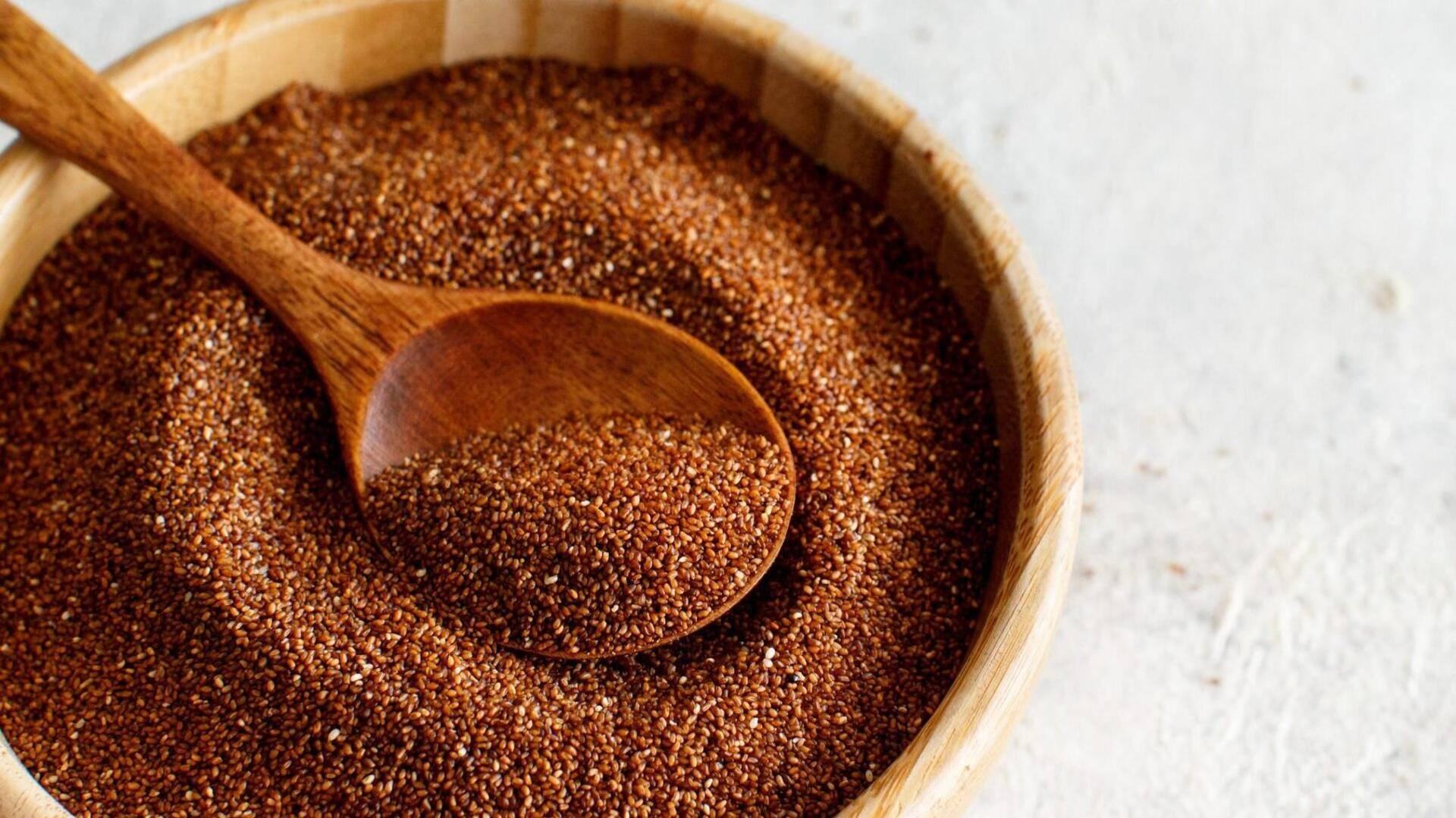
Discovering teff: Ethiopia's ancient super grain
What's the story
Teff, a minuscule grain, has been the backbone of Ethiopian culinary traditions for thousands of years. Celebrated worldwide for its nutritional powerhouse, it boasts high fiber, protein, and vital minerals. Its naturally gluten-free characteristic endears it to those with specific dietary needs. Plus, its versatility in both cooking and baking makes it a delicious and nutritious addition to any diet.
Nutrition
A nutritional powerhouse in tiny seeds
Tiny teff seeds are big-time nutritional powerhouses! They're loaded with dietary fiber. Just 100 grams of teff delivers around 8% of your daily recommended intake. This grain is a protein powerhouse, too, with roughly 13 grams of protein in every 100-gram serving. Plus, teff is a fantastic source of essential minerals, including calcium, iron, and magnesium.
Gluten-free
Gluten-free alternative for baking
People with celiac disease or gluten sensitivity often struggle to find alternatives that don't taste like cardboard. Enter teff flour, a gluten-free baking game-changer. This nutritious powerhouse lets you bake delicious breads, cakes, and cookies without the gluten. Plus, its mild, nutty flavor adds a tasty twist to your baked goods, all while packing in the health benefits of this ancient grain.
Sustainability
Cultivating sustainability with teff
Teff is not only a nutritious addition to your diet, it also supports sustainable agriculture. It requires very little water and can grow in diverse environmental conditions, making it a perfect crop for drought-prone areas. By introducing teff into their farming systems, farmers can contribute to biodiversity and healthy soils while ensuring food security in their communities.
Recipes
Exploring traditional and modern recipes
The staple Ethiopian dish injera highlights the distinct character of teff with its spongy, fermented texture and slightly sour flavor. Apart from injera, teff flour is versatile and can be used to create pancakes, comforting porridge, and even pasta. Trying teff in both traditional African dishes and contemporary recipes not only provides the advantage of its nutritional content but also offers the opportunity to discover new flavors and textures.
Tips
Tips for incorporating teff into your diet
Start with small amounts of teff because of its high fiber content, which can help support digestive health. Replace a portion of the flour in recipes with teff flour or add the grains to salads for a delightful bit of crunch. Because it's gluten-free, mixing it with other flours will yield a better texture in baked goods overall.